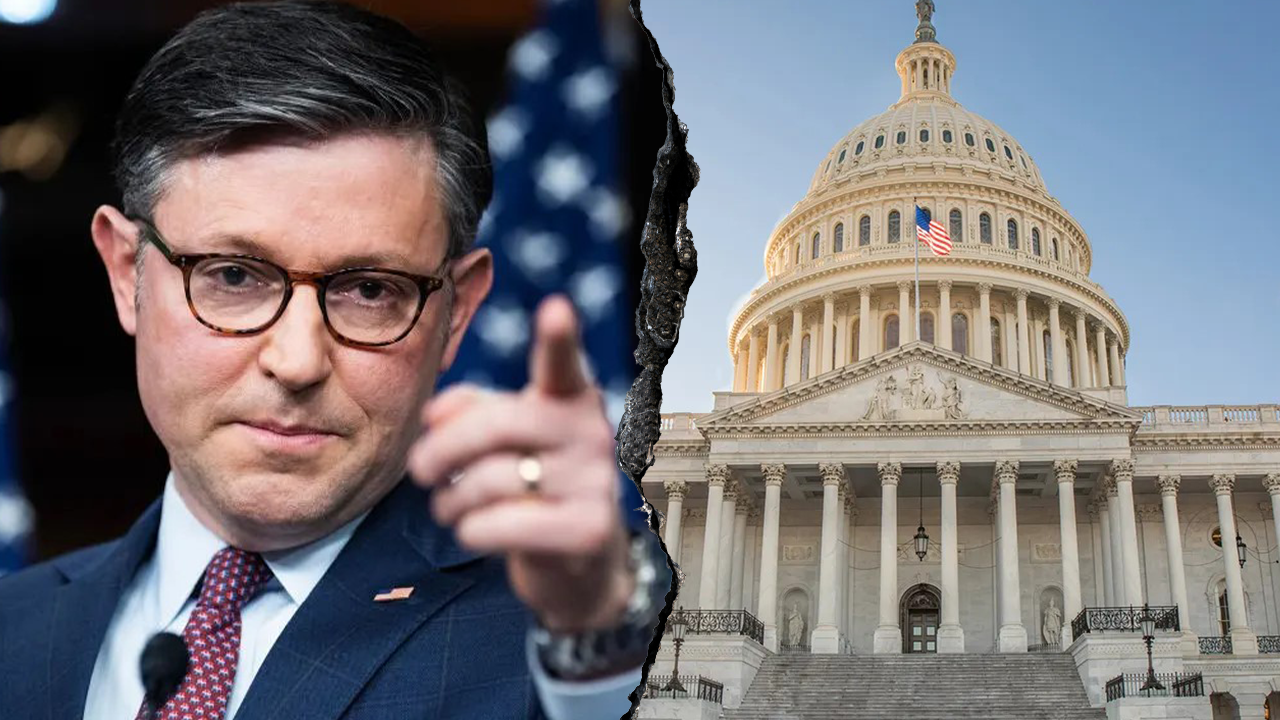World
Amazon, Google, Facebook: the EU names the digital gatekeepers
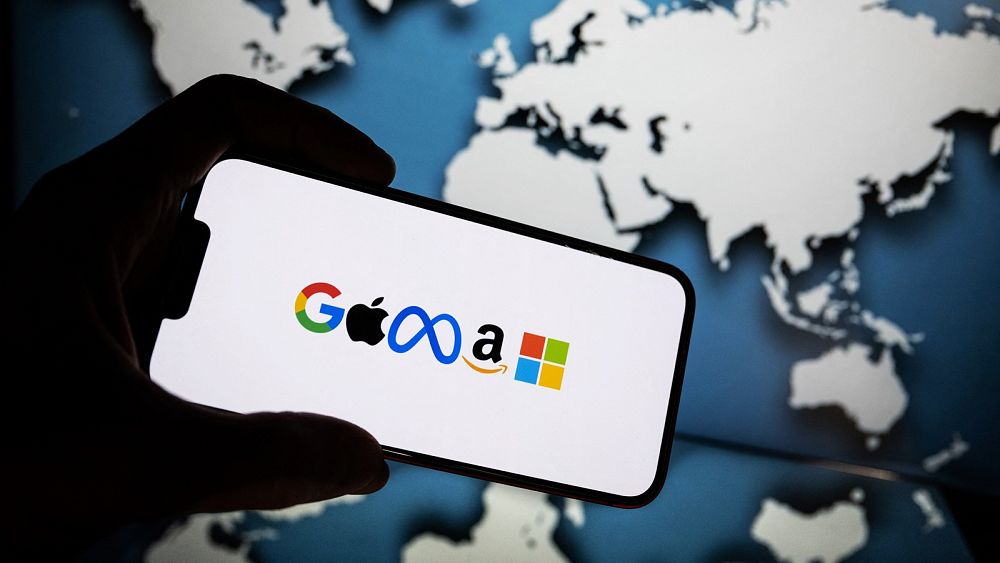
The European Commission has named six Big Tech companies as gatekeepers of the digital economy, making them subject to stricter rules.
Five American companies – Alphabet, Amazon, Apple, Meta and Microsoft – and one Chinese – ByteDance – are the first to be given the designation. As a result, they will now face legal obligations to change the way in which their popular services, such as messaging, social media, video-sharing and Internet browsers, are offered online.
The move is part of the Digital Markets Act (DMA), a pioneering law that adapts long-standing principles of competition policy to the new reality of the 21st century, where a few corporations have amassed enormous influence over the free market, often to the detriment of small businesses and daily users.
The hand-picked companies are considered gatekeepers because they have an annual turnover of at least €7.5 billion in the European market or a market capitalisation of at least €75 billion, and also more than 45 million monthly users and 10,000 yearly business users across the European Union territory.
This economic might has granted them an “entrenched and durable” position of dominance in the digital economy, the European Commission says, and requires a new set of stringent rules that can rein their power excesses, bring down obstacles for new competitors and create greater accountability.
“It’s a very important milestone for freedom and innovation online in Europe,” said Thierry Breton, European Commissioner for the internal market, promising strong enforcement. “No online platform can behave as if it was too big to care.”
The obligations are extensive and structured as “dos and don’ts.”
For example, gatekeepers will be banned from ranking their own products or services in a more favourable manner, a long-running point of contention between Big Tech and SMEs.
They will also have to allow users to easily unsubscribe from core services, change default settings and remove pre-installed apps to install third-party alternatives.
Similarly, platforms will have to ask users for their explicit permission before combining the personal data obtained from different services, such as Instagram and Facebook, both owned by Meta, and producing targeted advertising.
The provisions will take full effect in six months, a period during which the gatekeepers will have to inform the European Commission of how they intend to abide by the law.
In case of non-compliance, the executive can impose fines of up to 10% of the company’s worldwide turnover, which can double if the wrongdoing persists. Brussels might also impose remedial measures such as forcing a corporation to sell a part of its business.
From Google Maps to TikTok
The designation as gatekeepers had been widely expected by the industry and the targeted companies, some of which have already updated their operations in a bid to pre-emptively align themselves with the legislation.
As a starting point, the specific services subject to the rules are:
- Alphabet: Android, Chrome, Google Search, Google Maps, Google Play, Google Shopping, Google Ads, YouTube.
- Amazon: Amazon Marketplace, Amazon Ads.
- Apple: App Store, Safari, iOS.
- ByteDance: TikTok.
- Meta: Facebook, Instagram, WhatsApp, Messenger, Meta Marketplace, Meta Ads.
- Microsoft: LinkedIn, Windows PC OS.
The list is open and companies can be added or removed over time.
The European Commission is looking into whether four additional services – Microsoft’s Bing, Edge and Advertising, and Apple’s iMessage – should be qualified as “core platform services” and therefore be brought under the framework.
Notably, two well-known, widely-used email providers – Alphabet’s Gmail and Microsoft’s Outlook – were excluded from the initial selection after the parent companies successfully argued against the designation.
Samsung, the South Korean tech giant, was equally removed, despite the company having previously notified the Commission of its potential to be a gatekeeper.
X, formerly known as Twitter, was also spared.
Asked about these omissions, senior EU officials said they could not disclose details due to the confidential conversations with the firms but underlined the selection would be proportional to the role the platforms play as a “gateway” for users and businesses.
Centralised enforcement
Adopted in September 2022, the DMA marks a new chapter in the EU’s competition policy, whose foundational principles date back to the origins of European integration.
With the law, Brussels turns around its traditional philosophy: instead of focusing on protracted legal cases against malpractices that have been going on for years, the DMA introduces ex-ante rules to prevent the offense from arising in the first place.
The “dos and don’ts” imposed on the gatekeepers will knock down barriers to market entry and make it easier for start-ups to compete vis-à-vis Big Tech, says Alexandre De Streel, a senior researcher at the Centre on Regulation in Europe. This shift will lead to greater choice and transparency for consumers.
“The idea is to de-silo the digital economy,” De Streel told Euronews in an interview.
“It’s a law that helps promote business users, so the app developers, the sellers on Amazon, the small players who want to be active in the digital economy, and ultimately, because those will be helped by the law, the end user, you and me, will benefit of more choice and innovation. This is a law that’s in the general interest.”
Unlike the General Data Protection Regulation (GDPR), whose enforcement relies on national authorities and often yields asymmetrical results, the implementation of the DMA will be centralised in a special unit inside the European Commission that will gather 80 staff members by 2024, including legal experts, data scientists and policy officers.
Given its ground-breaking nature, the legislation is expected to resonate beyond the bloc’s borders and have a spill-over effect in other countries that share the same concerns about the excessive, unchecked market power wielded by Big Tech.
This article has been updated with more information about the DMA.

World
Israel's US ambassador says beeper operation will 'seem simple' compared to what is planned for Iran
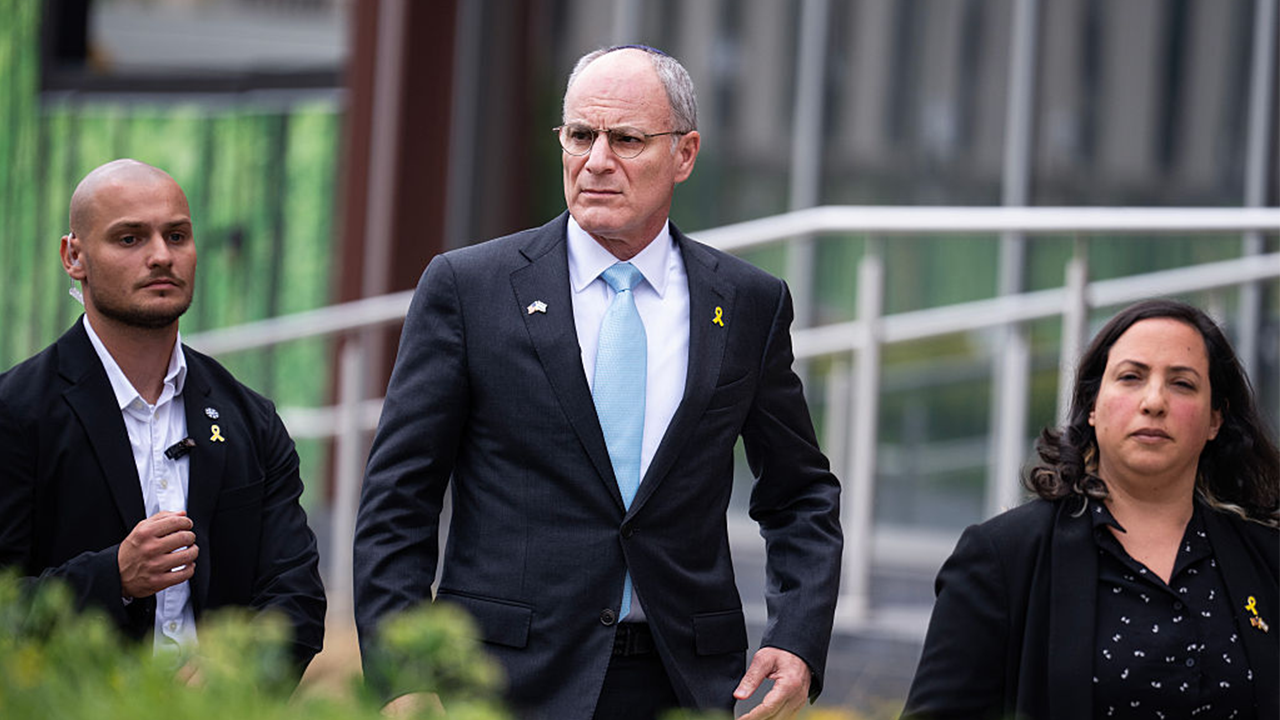
NEWYou can now listen to Fox News articles!
Israel’s Ambassador to the U.S. Yechiel Leiter said there will be some surprises amid the Jewish State’s conflict with Iran that will make Israel’s explosions of pagers and walkie-talkies used by members of Hezbollah in Lebanon and Syria last year look “simple.”
“We’ve pulled off a number of surprises,” Leiter said during a Tuesday appearance on the TV network Merit Street.
“When the dust settles, you’re going to see some surprises on Thursday night and Friday that will make the beeper operation almost seem simple,” he continued.
Leiter was referring to near-simultaneous detonations of pagers used by members of the Iran-backed Hezbollah terror group that killed at least 12 people, including two children, and wounded nearly 3,000 on Sept. 17 in Lebanon and Syria. The following day, at least 25 people were killed and more than 600 were wounded when walkie-talkies were detonated in the region.
TRUMP, RUBIO CUTTING G7 TRIP SHORT, RETURNING TO DC AS CHATTER INDICATES IRANIANS FLEEING TEHRAN
Israel’s Ambassador to the U.S. Yechiel Leiter said there will be some surprises that will make Israel’s beeper operation look “simple.” (Getty Images)
Israel was subsequently found to be behind the attacks, in which small amounts of explosives hidden in the devices were detonated. A U.S. official told The Associated Press at the time that Israel briefed the U.S. government after the attacks.
But then-Secretary of State Antony Blinken said the U.S. “did not know about, nor was it involved in, these incidents.”
Leiter on Tuesday also posted a video message on X that was recorded outside the Situation Room in the Israeli Embassy in Washington, D.C., where he explained that Israel was “not in the business of regime change.”
MIKE JOHNSON CALLS OFF ISRAEL TRIP AMID IRAN CONFLICT

Israel’s Ambassador to the U.S. Yechiel Leiter said Israel was “not in the business of regime change.” (Getty Images)
“Today we continue to peel back the surface-to-surface missile systems that are spread throughout Iran. We’ve reached the point where between a third and a half have been demolished,” he said. “We hit today the broadcast center in the middle of Tehran after we informed the people living in the vicinity to leave. Hundreds of thousands of Tehranis have escaped Tehran to be out of the line of danger. And we took out the broadcast system. This is very important because this serves the mullahs and their information campaign, the propaganda campaign throughout.”
“Iran, to incite the public and to warn the public against any kind of demonstrations against the government,” the ambassador continued. “A lot of questions have been asked today about regime change. In many of the interviews that I gave, that was the key question. We’re not in the business of regime change. We’re interested in neutralizing the threat to our existence through a nuclear weaponization program in Iran and a ballistic missile program.”
Iran has maintained that its nuclear program is peaceful, and U.S. intelligence agencies and the International Atomic Energy Agency have said Iran was not pursuing a nuclear weapon.

Israel’s Ambassador to the U.S. Yechiel Leiter said the Jewish State has “pulled off a number of surprises.” (Getty Images)
“If the Iranian people rise up and change their regime, that’s their choice,” Leiter said. “And if we play a role in facilitating that eventuality, then history will judge us favorably, I believe. It’s important also to emphasize that our economy remains strong and resilient despite the war, and the stock market in Israel once again, for the second day in a row, continued to rise.”
“We are working very hard to assist those stranded both in Israel wanting to leave and those wanting to get back to Israel, to their families, to their positions in society and the army,” he added. “And we’re hoping to find solutions through our neighbors in the next couple of days. We continue to press on. We continue to press forward. And we thank you for your support and prayers.”
Fox News’ Greg Norman and Jennifer Griffin contributed to this report.
World
Coal-hooked Poland constructs first ever offshore wind farm
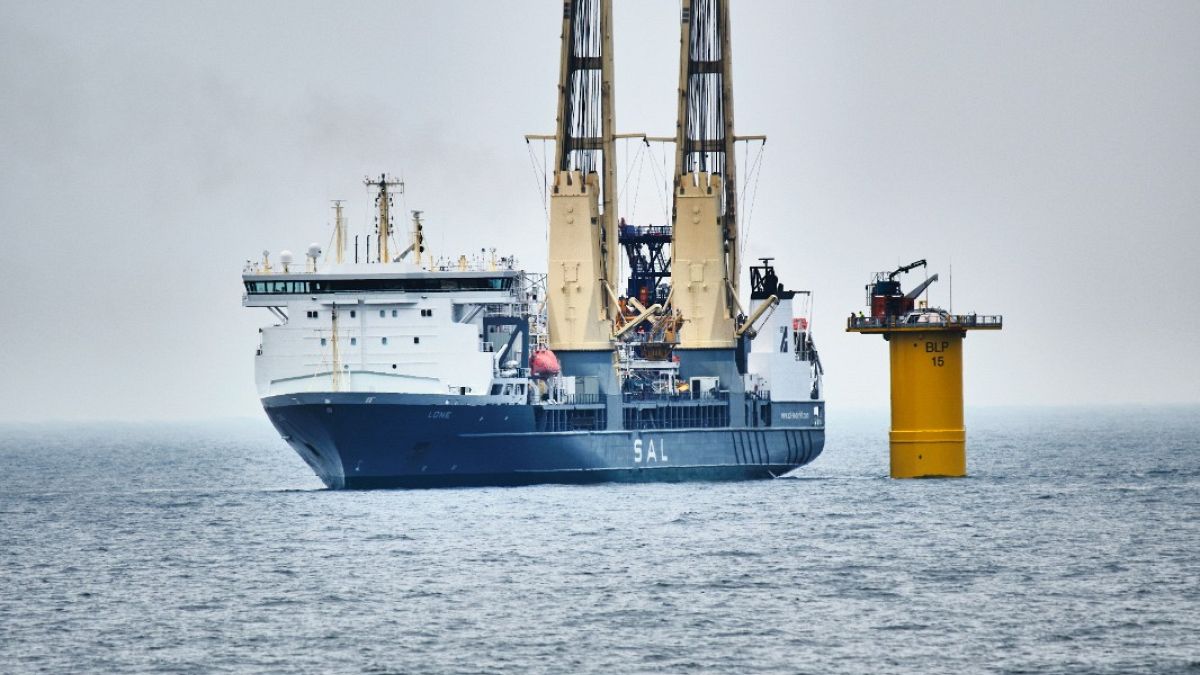
Published on
Once reliant on coal for the majority of its electricity, the country of 36 million that currently holds the EU rotating presidency is trying to reduce its dependence on the fossil fuel.
With many mines becoming unprofitable and old infrastructure in decline, the Polish government of Prime Minister Donald Tusk has planned a gradual closure of coal facilities in the south of the country. As the coal regions of the country come to terms with this shift, northern Poland adjacent to the Baltic Sea is booming.
Ignacy Niemczycki, the deputy minister in the Chancellery, briefed a handful of Brussels-based journalists on board the Jantar passenger ship, telling Euronews that the wind farm should have a lifecycle of up to 30 years and be a major part of the energy transition.
“It’s in the interest of the Polish economy to invest in renewables, nuclear, and gas to stabilise the grid,” the minister told Euronews.
Baltic Power – a joint venture between ORLEN and Northland Power
Situated 23 kilometres off the northern coast near Choczewo and Łeba, the wind farm is among the most advanced renewable energy projects in the Polish Economic Zone. The final installed capacity of the project is expected to reach 1140 MW, enough to supply electricity to approximately 1.5 million Polish households.
Poland also to invest in nuclear
Renewables will only be one part of the Polish energy mix. Plans for the first ever nuclear plant, which will also be located on Poland’s northern Baltic Sea coast, were put in place under the former Law and Justice (PiS) government and have been continued by Prime Minister Donald Tusk’s current ruling coalition.
Niemczycki told Euronews that a second nuclear project is being considered and Poland is keeping a close eye on Canada as it experiments with the first ever mini nuclear plant, known as a Small Modular Reactor (SMR). SMRs could can potentially power up to 300 MW(e) per unit.
“We will see a major change in Poland’s energy mix over the next 15 years,” said Niemczycki. “Nuclear will become the new baseline, with renewables and gas providing flexibility and stability.”
World
France’s Macron Faces Dilemma With Intention to Recognize Palestinian State

Turbulent relations between France and Israel are nothing new, but even by those historical standards the crisis caused by President Emmanuel Macron’s apparently imminent readiness to recognize a Palestinian state is acute.
The postponement, as a result of fighting between Israel and Iran, of a United Nations conference this week convened to explore the creation of a Palestinian state has deferred any announcement but appears to have redoubled Mr. Macron’s resolve. “Whatever the circumstances, I have stated my determination to recognize a Palestinian state,” Mr. Macron said on Friday. “That determination is whole.”
“We must reorganize it as soon as we can,” he said of the conference, which he was to chair with Crown Prince Mohammed bin Salman of Saudi Arabia. French officials close to Mr. Macron say he has told the crown prince of his firm intention to recognize a Palestinian state.
Vilified by Israel as leading “a crusade against the Jewish state,” and spurned in his peacemaking efforts by the United States, which is implacably opposed to the conference and has urged countries to shun it, Mr. Macron is confronted by a diplomatic predicament that will test his renowned adaptability, viewed by some as wobbliness.
Mr. Macron — outraged, like much of the world, by the almost 56,000 Palestinians killed by Israel in Gaza since the start of the war, and by its near or total blockade of the strip in recent months — has spoken of “a moral duty and political requirement” to recognize a Palestinian state.
In the absence of Israeli plans for Gaza, and in the face of Israel’s bombardment of Iran aimed at destroying its nuclear program, Mr. Macron believes that only a strong political commitment to Palestinian statehood can open the way to a two-state peace, persuade Hamas to lay down its arms and eventually advance regional stability.
The Israeli view is the opposite: that French recognition would reward Hamas terrorism. A senior French envoy, speaking on condition of anonymity, said she was dressed down for several hours this month in Jerusalem by Ron Dermer, the Israeli minister of strategic affairs, and Tzachi Hanegbi, the national security adviser, who told her that Mr. Macron serves the ends of Hamas and “supports a terrorist state.”
“I suspect there is some relief at the postponement,” said Lakhdar Brahimi, a former Algerian foreign minister and long a senior U.N. diplomat, referring to the conference’s French and Saudi co-chairs. “What are they going to do without U.S. support? This will change nothing on the ground.”
The history of ties between Israel and France, which hesitated before recognizing the newborn state in 1949, only to provide critical military and technological support, has known many highs and lows. “This is a moment of particularly extreme tension,” said Miriam Rosman, an Israeli historian who wrote a book on the relationship. “Macron is neither consequential nor coherent and may be on the verge of a grave error.”
That is not the view of several officials in Mr. Macron’s entourage, including his diplomatic adviser, Emmanuel Bonne, and his Middle East adviser, Anne-Claire Legendre. They share the conviction of a growing number of European states, many previously supportive of Israel, that the most right-wing government in Israel’s history is leading the country down a blind alley at devastating cost in Palestinian lives.
For Israel, France is a point of particular sensitivity. Spanish, Irish and Norwegian recognition of a Palestinian state last year was one thing; French recognition would be of a different order, given the intensity of an emotional historical bond.
France is the only nuclear power and only permanent member of the U.N. Security Council in the European Union. Some 150,000 French citizens live in Israel, according to the foreign ministry; 48 of them were among the 1,200 people killed in the Oct. 7, 2023, Hamas attack.
“There is fundamental French attachment and commitment to Israel that stems in part from the history of the Vichy regime,” said Gilles Kepel, a leading French expert on the Middle East. The regime, which led a rump France under Nazi occupation, deported 76,000 Jews to their deaths.
France made a critical contribution in the 1950s to Israel’s development of its unacknowledged nuclear bomb. It provided Mirage fighter jets that played an important role in Israel’s defense.
In 1967, however, President Charles de Gaulle called the Jews an “elite people, sure of itself and domineering.” Israel was outraged. Seeking to heal the wounds of the Algerian war, he set out to befriend the Arab world and imposed an arms embargo on Israel.
Support for Israel has since been tempered by an unbending French commitment to a Palestinian state, initially laid out before the Knesset in 1982 by President François Mitterrand, the first French head of state to visit Israel. Unlike the United States, France has been consistent in its rejection of the Israeli occupation of the West Bank, which has turned Palestinian statehood into an ever more distant chimera.
“Recognition and full admission of the Palestinian state to the United Nations are a precursor to a political solution,” said a French statement that reflected Mr. Macron’s thinking and was intended to set the framework for the conference in New York.
This amounts to the antithesis of the Israeli and American positions that any Palestinian state demands prior negotiation on security, borders, governance and other matters. But that approach has yielded nothing for a long time. Just this month, Israel announced it would build 22 new settlements in the West Bank, the largest expansion in two decades.
“The United States opposes any steps that would unilaterally recognize a conjectural Palestinian state,” the Trump administration said in a cable last week first reported by Reuters.
On Thursday, Mr. Macron posted a statement on X lauding Mahmoud Abbas, the Palestinian Authority president, saying that a letter “of hope, courage and clarity” received from him last Tuesday “traced the path toward a horizon of peace.”
In the letter, Mr. Abbas called for Hamas to “hand over its weapons,” immediately free all hostages and leave Gaza. He also committed to reform the notoriously corrupt and ineffective Palestinian Authority.
The letter met several of the conditions set by Mr. Macron for French recognition of a Palestinian state. But other voices close to the president are pushing him in another direction.
“The very idea of Palestinian state can only be envisaged after Hamas has laid down its arms, its commanders in Gaza have gone into exile, and the people of the West Bank and Gaza have renounced their murderous dream of a Palestine stretching from the sea to the Jordan border,” said Bernard-Henri Lévy, a French author and intellectual who has the ear of Mr. Macron.
He suggested that Mr. Macron was still torn, buffeted from both sides, but leaning in the direction of delaying French recognition, which the president has said should not come in isolation. Germany, a close ally of both France and Israel, said this month that recognition would send “the wrong signal.”
As for Prince Mohamed of Saudi Arabia, he finds himself obliged to juggle his close relationship with President Trump and his determination to advance Palestinian statehood. While the prince has described Israel’s war in Gaza as “genocide,” Mr. Macron has gone through contortions to appear balanced since Oct. 7, 2023.
The French president governs the largest Muslim and Jewish populations in Western Europe. He is confronted by a far left that has made “Free Palestine” its slogan and by the inescapability of France’s historical debt to Jews.
“This is no gift” and comes “far, far too late,” Rima Hassan, a far-left French member of the European Parliament, who is of Palestinian descent, said in April of Mr. Macron’s stated intention to recognize a Palestinian state. She was recently detained by Israel when aboard a charity vessel trying to take aid to Gaza and was later released.
Now Mr. Macron, the “at-the-same-time” president, so-called for his endless equivocations, must make up his mind. Of the 193 U.N. members, 147 have already recognized a Palestinian state.
But, as Itamar Rabinovich, a former Israeli ambassador to Washington, put it, “French recognition would bring greater diplomatic pressure on Israel and further erosion of our legitimacy, but not the creation of a Palestinian state any time soon, if ever.”
-

 Technology1 week ago
Technology1 week agoThere are only two commissioners left at the FCC
-

 News1 week ago
News1 week agoA former police chief who escaped from an Arkansas prison is captured
-

 Technology1 week ago
Technology1 week agoXbox console games are suddenly showing up inside the Xbox PC app
-

 Technology1 week ago
Technology1 week agoMassive DMV phishing scam tricks drivers with fake texts
-

 World1 week ago
World1 week agoColombia’s would-be presidential candidate shot at Bogota rally
-

 Arkansas1 week ago
Arkansas1 week agoTennessee baseball coach Tony Vitello has funny apology on ESPN at super regional vs Arkansas
-

 Politics1 week ago
Politics1 week agoVideo: Why the U.S. Brought Back Kilmar Abrego Garcia
-
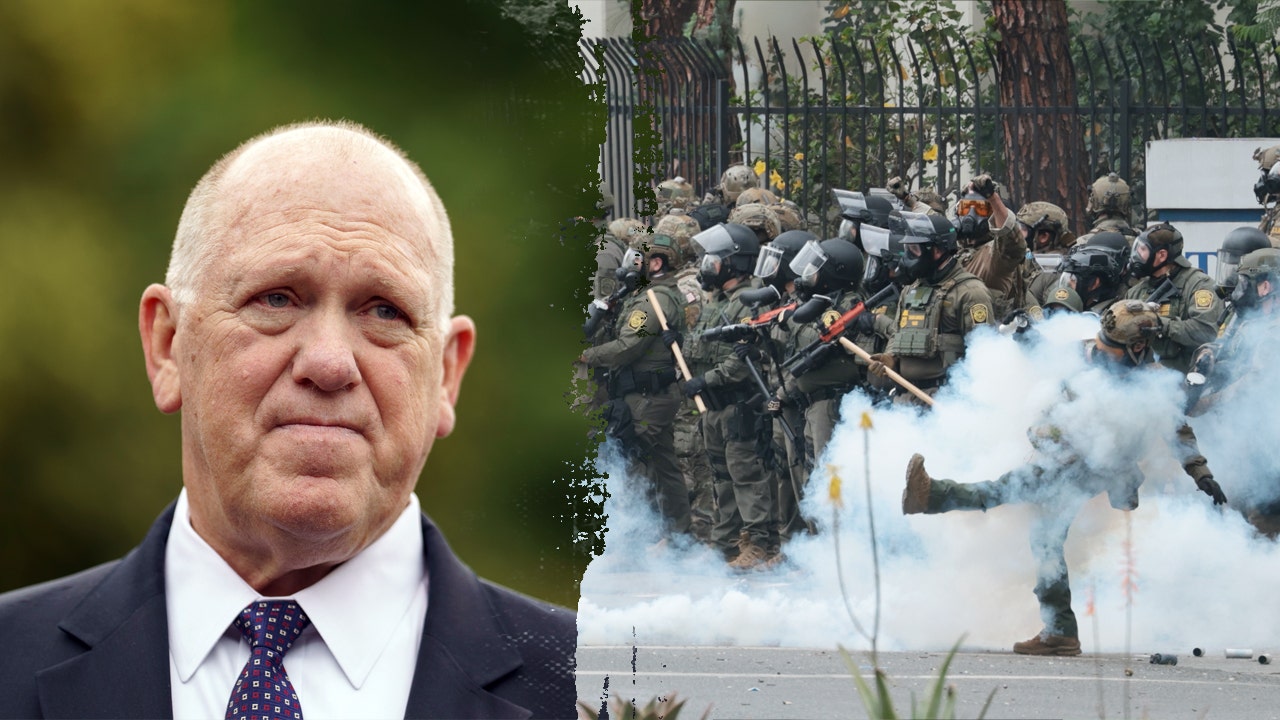
 Politics1 week ago
Politics1 week agoNational Guard to be deployed in Los Angeles County as anti-ICE protests rage: border czar Tom Homan

















